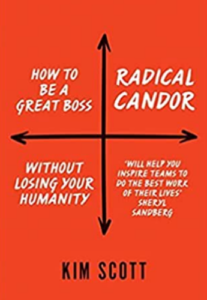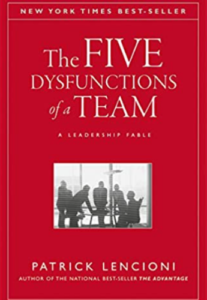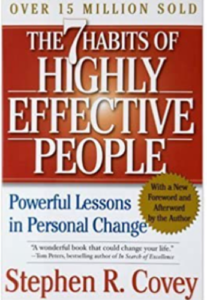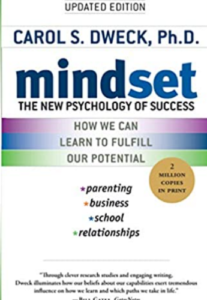
Leadership Coaching: Transform Your Leaders’ Edge In 2022
Leadership coaching is more of a competitive edge than ever, especially in this age of the Great Resignation. It’s leaders who ultimately engage and retain employees.
According to a massive employee well-being survey, employees who feel cared for by leaders are 3.2x as likely to report being happy and 3.7x more likely to recommend their company to a friend. On the other hand, employees at companies that struggle to support their managers are 50% more likely to seek new jobs.
When you consider those numbers, it’s no surprise that the 2022 LinkedIn Learning Report found that “leadership development” was by far the number one priority for L&D pros around the world.
Just like a great coach is often credited with turning around an entire sports team, a strong leadership coaching program can fundamentally improve your organization.
What Is Leadership Coaching?
Leadership coaching is the process of developing an individual so that they can interact better with others and perform better as a leader. The end goal is simple: It’s to help someone lead better.
Leadership coaching works similarly to coaching athletes. It helps people improve across a wide spectrum of ability levels. Even the most elite athletes rely on coaches to help them refine their skills and stay at the top of their game.
10 Benefits of Leadership Coaching
Studies on leadership show that leadership is more learnable and trainable than it is “innate” or something you’re born with. That’s a big reason why leadership coaching is so impactful. An academic review that pulled together a large amount of research on leadership coaching found that coaching consistently achieved positive results for the organization (like increased profitability) and for the individual (like measurable skill development and happiness).
Here are 10 benefits of leadership coaching:
- Performance. Just like with athletes, the end goal of a coach’s help is to enhance a leader’s performance. Coaches help employees see their strengths, weaknesses, and passions, and then use this knowledge to impact the organization’s bottom line.
- Expert perspective. Leadership coaches help illuminate leaders’ blind spots. Coaches are trained to notice the little habits leaders develop that hold them back from improving. A coach’s outside perspective is even more valuable than that of a friend or coworker because coaches constantly interact with leaders and can recognize critical patterns. Coaches are experts at spotting these trends in behavior that, once brought to a leader’s attention, will serve as a performance accelerator, helping them improve quickly and drastically.
- Communication. Communication impacts a leader’s ability to build relationships, foster an environment of inclusion, inspire, give feedback, have tough conversations, develop talented people reporting to them, and more. Whatever the situation, leaders can begin to improve their approach by getting feedback on their style of communication and training insights to grow their approach. Where can they lean into natural communication strengths? Where can they stand to improve?
- Listening. Coaches can help leaders hone their approach to listening by training them to listen actively and mindfully. Improved listening skills can help leaders build and sustain relationships, better understand what the people around them are thinking and feeling, and better support and foster growth of the people on their team.
- Emotional intelligence. So much of a leader’s success boils down to emotional intelligence. Self-awareness skills help them to better understand how they come across to others, how they tend to act in different situations, and what their core values and beliefs are. Self-management skills can help them stay calm under pressure, manage their stress, and regulate their actions to achieve the results they want. Social awareness skills can help deepen empathy, and help them get to know and understand the people around them more deeply. Relationship management can help them build, sustain, and deepen their relationships with a wide variety of important people. Coaches can help leaders assess and develop their emotional intelligence so they can reap the benefits.
- Growth mindset. Coaches can help show leaders that their abilities are not fixed. They can also help leaders learn to reframe their failures and mistakes as learning opportunities. This mentality shift can fundamentally reshape how leaders approach their work and see the world.
- Thinking differently. A good coach should help expand a leader’s perspective, and help them see alternative ways of thinking and doing things. They should help them think deeply about their values and beliefs, their personal brand, and the kind of mark they want to leave on the world. The end result should be a more flexible, purpose-driven, and creative leader.
- Self-fulfilling prophecy. Coaches help leaders see their potential by laying out where their strengths and passions could take them. The best coaches may even inspire a kind of self-fulfilling prophecy, where leaders’ dream paths are illuminated by their coach’s belief and vision.
- Collaboration. Coaches can guide leaders to see the strengths, weaknesses, and passions of their team members. This enables leaders to become masterful facilitators of collaboration and interaction. They initiate strong pairings between people who complement each other’s strengths and weaknesses. The end result is a team that collaborates at a level greater than the sum of its parts.
- Casting an organizational ripple. When a coach gets through to a leader, they change not only that leader, but also the leader’s team, peers, and boss. Just like the study at the top of this section shows, coaching leaders significantly impacts an organization’s bottom line. Studies also show how leaders’ emotions are especially contagious to the people around them, and how leaders who support employees help make them more resilient, happy, and likely to stay.
How to Choose the Right Leadership Coaching Program
As you look for a leadership coaching program that will work well for you and your goals, be sure to look for these five qualities:
- A coach who leaders feel comfortable with and safe opening up to. To make all of the previously mentioned learnings happen, your leaders have to feel comfortable with their coach. Often, this means letting leaders choose and try out different coaches to find someone who feels like the right fit. The worst-case scenario is a coach who makes people feel judged, or even spied on by their organization.
- A coach who works with leaders’ goals. Some coaches have pre-mapped approaches and curriculums that they use regardless of the individual’s schedule, needs, or style. Find a coach who is flexible with your leaders. The whole purpose of a coach is to get individualized feedback, guidance, and conversations. A one-size-fits-all coach will eliminate many of the benefits a coach should offer.
- A coach who gives critical and impactful feedback. Sometimes a coach makes people feel comfortable, open, and personally supported, BUT, they do so by letting the coachee vent and by telling the coachee what they want to hear. A good coach should deliver crucial feedback even if it’s not what the leader wants to hear. They should also be able to move coaching sessions past venting to explore stimulating questions, potential paths forward, and useful skills to practice.
- A coach who establishes a long-term timeline. The best coaching paths tend to be 3+ months. It takes time and practice to instigate behavioral change. A good coach should build out a plan that takes this into consideration.
- A coach who creates a plan to measure and track progress. In line with the importance of time is the importance of measurement. A good coach should have a plan for how they want to track, measure, and hold leaders accountable for progress.
Additional Resources:
- 7 Ways to Leverage Management Coaching at Your Organization
- Why Group Coaching Might Be the Best Option for You
- Training Your Managers to Coach
Make Leadership Coaching Stick with Nudges, Microlearnings, and Test-Retest.
Just like therapy and dentistry don’t work if you don’t practice and brush & floss between sessions, coaching ultimately relies on the application of learning between sessions. The worst kind of coaching plan is one that dumps money, time, and resources into thousands of coaching sessions for thousands of leaders, only to rely on ineffective, untrackable, and uninteresting ways of making training stick. Here are three trackable, measurable, and easy ways to make sure coaching actually sticks.
Nudges. “Use nudges. Consider working with organizational psychologists to design nudges (encouraging reminders) that prompt learning. Design tests to find out which nudges are most effective.” – Dr. Serena Huang, Head of People Analytics at Paypal
Nudges have existed for a long time, and that’s because they work naturally with the human brain. “Do you want to supersize that?” “107 days without an incident,” and “Your appointment is scheduled for 8:30 am tomorrow. Confirm here” are all examples of nudges incorporated into our daily lives. Nudges are quick and easy reminders designed to change your behavior. Leveraging nudges can bring coaching to life daily, on leaders’ schedules, and in the natural flow of their work.
 Microlearnings. Often delivered in the form of a nudge, microlearnings are also powerful ways to reinforce coaching. Microlearnings were mentioned in the recent 2022 LinkedIn Learning Report as growing in popularity for their seamless integration into people’s everyday workflow. Microlearnings follow up on important coaching topics and sessions with the most essential ideas distilled into memorable mini-lessons (they can be as quick as a couple of sentences or a 2-minute video from the CEO).
Microlearnings. Often delivered in the form of a nudge, microlearnings are also powerful ways to reinforce coaching. Microlearnings were mentioned in the recent 2022 LinkedIn Learning Report as growing in popularity for their seamless integration into people’s everyday workflow. Microlearnings follow up on important coaching topics and sessions with the most essential ideas distilled into memorable mini-lessons (they can be as quick as a couple of sentences or a 2-minute video from the CEO).
Test-Retest. One of the most obvious (and somehow under-utilized) ways to track progress with coaching is to test someone, coach them, then test them again. This can be done in varying degrees of intensity and budget. The gold standard big-money approach is to use a 360 assessment, measuring not only how the leader sees their own performance, but also how the people around them rate their performance. Review the results with a coach, practice key behaviors, then take a second 360 assessment a year later to check if the leader’s practice paid off.
A second way to check in on behavioral change is to use a pulse survey. Bettina Koblick, the Chief People Officer at UiPath, employs a pulse survey that checks in with leaders’ direct reports to see if they’re following through on specific behaviors important to UiPath. For example, the pulse will ask one simple question, like “Have you had a good conversation with your manager recently?”
Lastly, test-retest can take the form of a self-assessment where leaders assess their own behavior, practice with a coach, then self-assess again to see if they’ve improved. While less accurate and more biased, a self-assessment test-retest is still a powerful tool of reflection and offers data to inform your coaching plan.
10 Great Books for Leaders and Leadership Coaches
Dare To Lead. Brené Brown shows leaders how to have the courage necessary to lead a great team—and all that this entails.

Radical Candor. Kim Scott writes about how leaders can communicate better and give feedback more effectively.

The Five Dysfunctions Of A Team. Patrick Lencioni lays out the steps teams and their leaders need to take to collaborate more effectively.

How To Win Friends And Influence People. Dale Carnegie’s classic book covers how to manage and deal with people.
 Future Tense. Leaders face a lot of stress and anxiety. Learn how anxiety works and how you can actually use this to your advantage—daily.
Future Tense. Leaders face a lot of stress and anxiety. Learn how anxiety works and how you can actually use this to your advantage—daily.
 Crucial Conversations. The authors present a series of tips to handle high-stakes conversations.
Crucial Conversations. The authors present a series of tips to handle high-stakes conversations.
 The Untethered Soul. This book helps leaders turn inward and explore their own thoughts, feelings, and consciousness.
The Untethered Soul. This book helps leaders turn inward and explore their own thoughts, feelings, and consciousness.
 The Seven Habits of Highly Effective People. Stephen R. Covey’s book gives a series of practical principles people can follow to be more successful.
The Seven Habits of Highly Effective People. Stephen R. Covey’s book gives a series of practical principles people can follow to be more successful.
 Mindset. Carol Dweck shows leaders how to adopt a growth mindset, where challenges and failures become opportunities to learn and grow.
Mindset. Carol Dweck shows leaders how to adopt a growth mindset, where challenges and failures become opportunities to learn and grow.
 Emotional Intelligence 2.0. Our Chief People Scientist, Dr. Travis Bradberry, and Dr. Jean Greaves break down the four core skills of emotional intelligence. These skills are also powerful skills for leaders to improve their performance.
Emotional Intelligence 2.0. Our Chief People Scientist, Dr. Travis Bradberry, and Dr. Jean Greaves break down the four core skills of emotional intelligence. These skills are also powerful skills for leaders to improve their performance.
 How You Develop Leaders Is How They Will Develop Your Organization
How You Develop Leaders Is How They Will Develop Your Organization
Coaching leaders is ultimately about reaching and improving everyone at your organization—either directly or through your leaders. Invest in the time and effort it takes to build a successful coaching plan to develop your leaders, and you’ll cast a positive ripple through your organization.


 How You Develop Leaders Is How They Will Develop Your Organization
How You Develop Leaders Is How They Will Develop Your Organization


